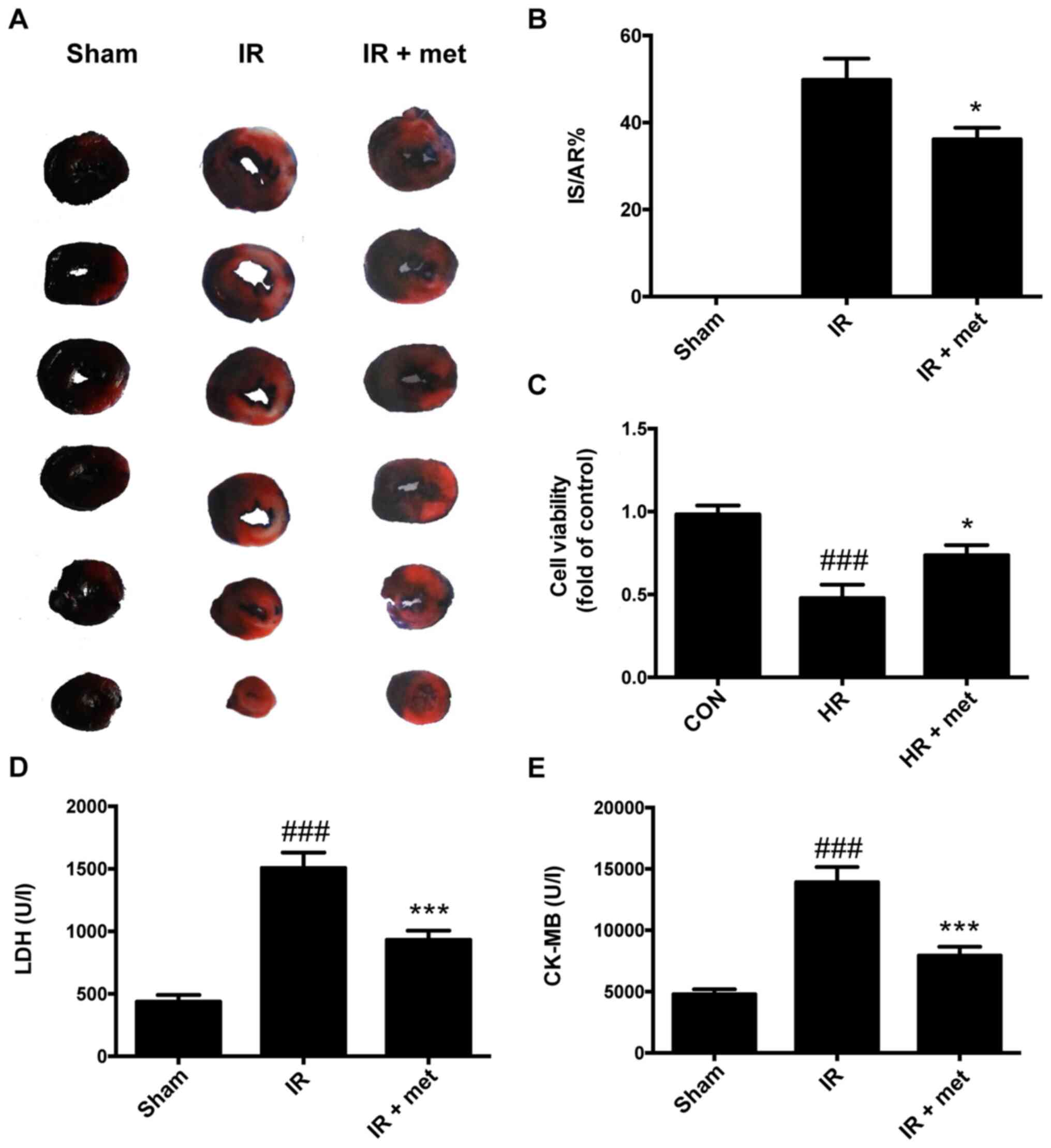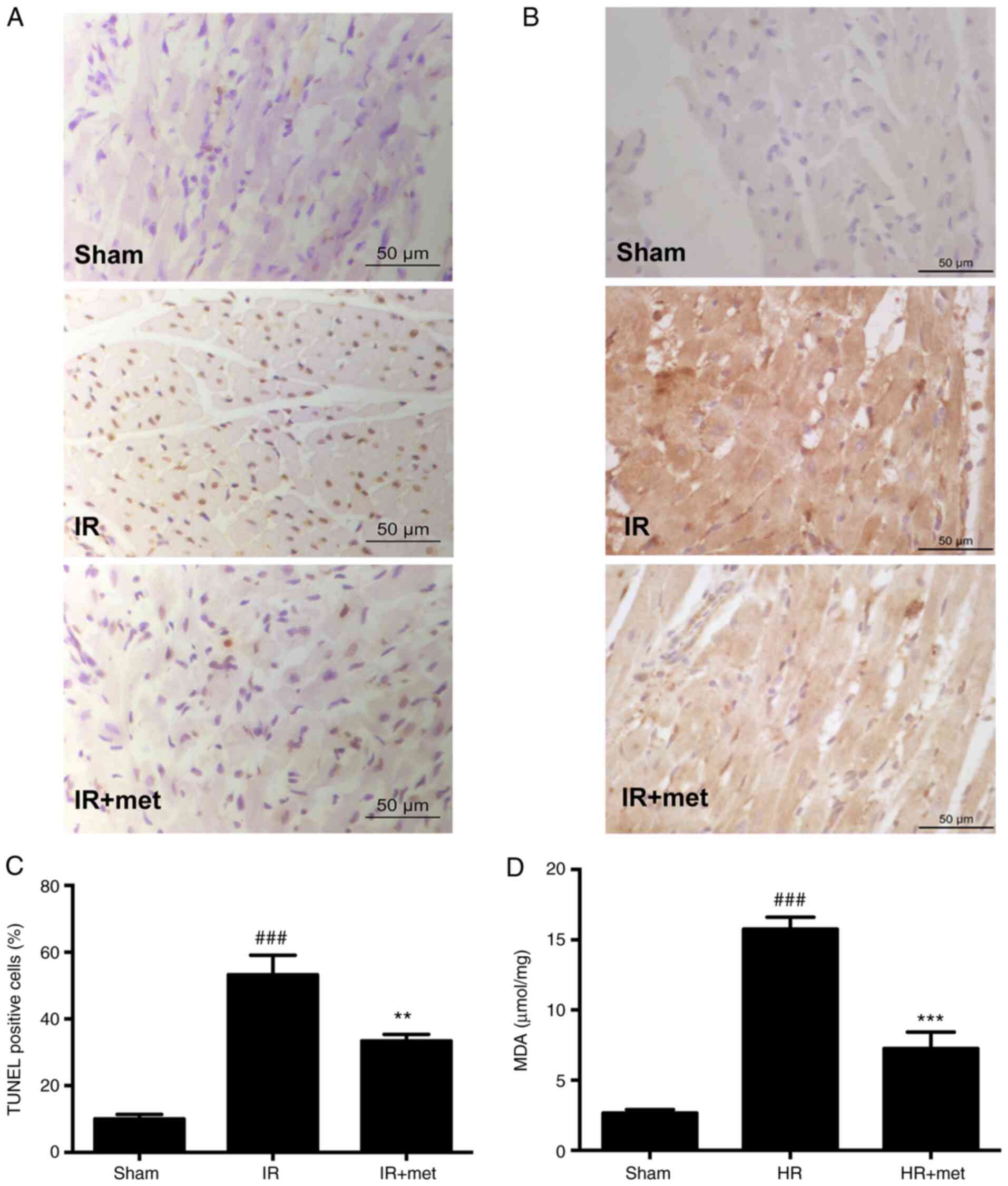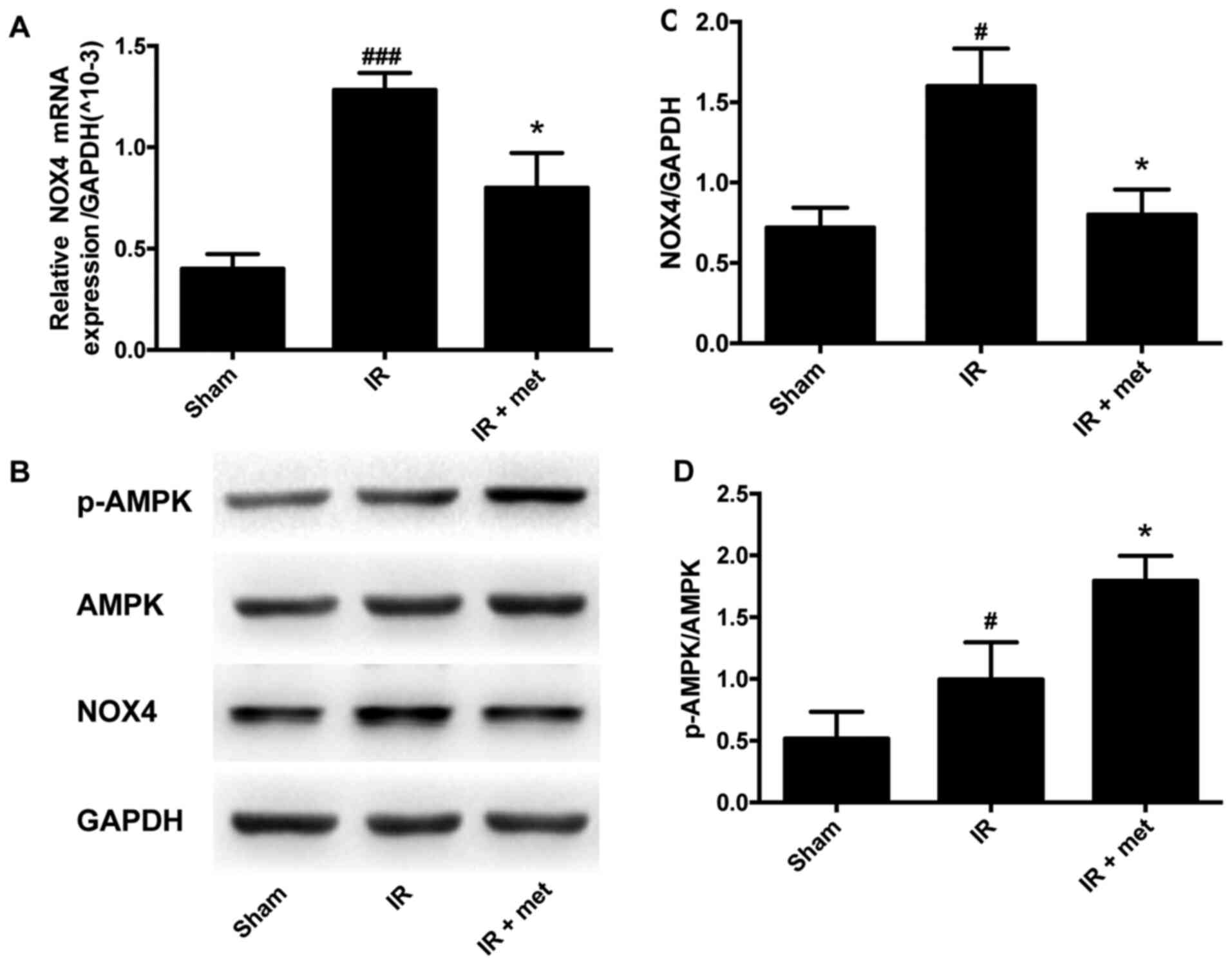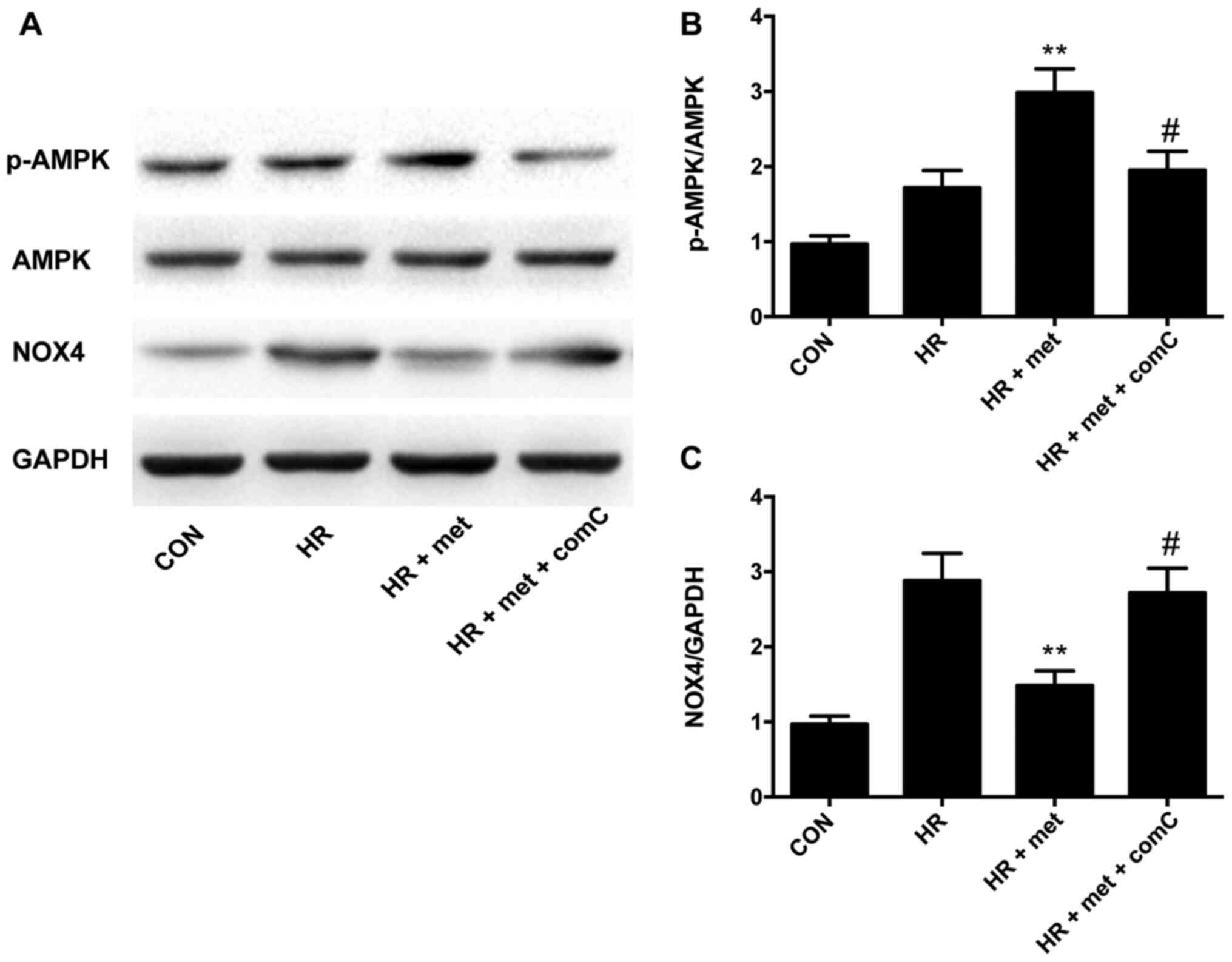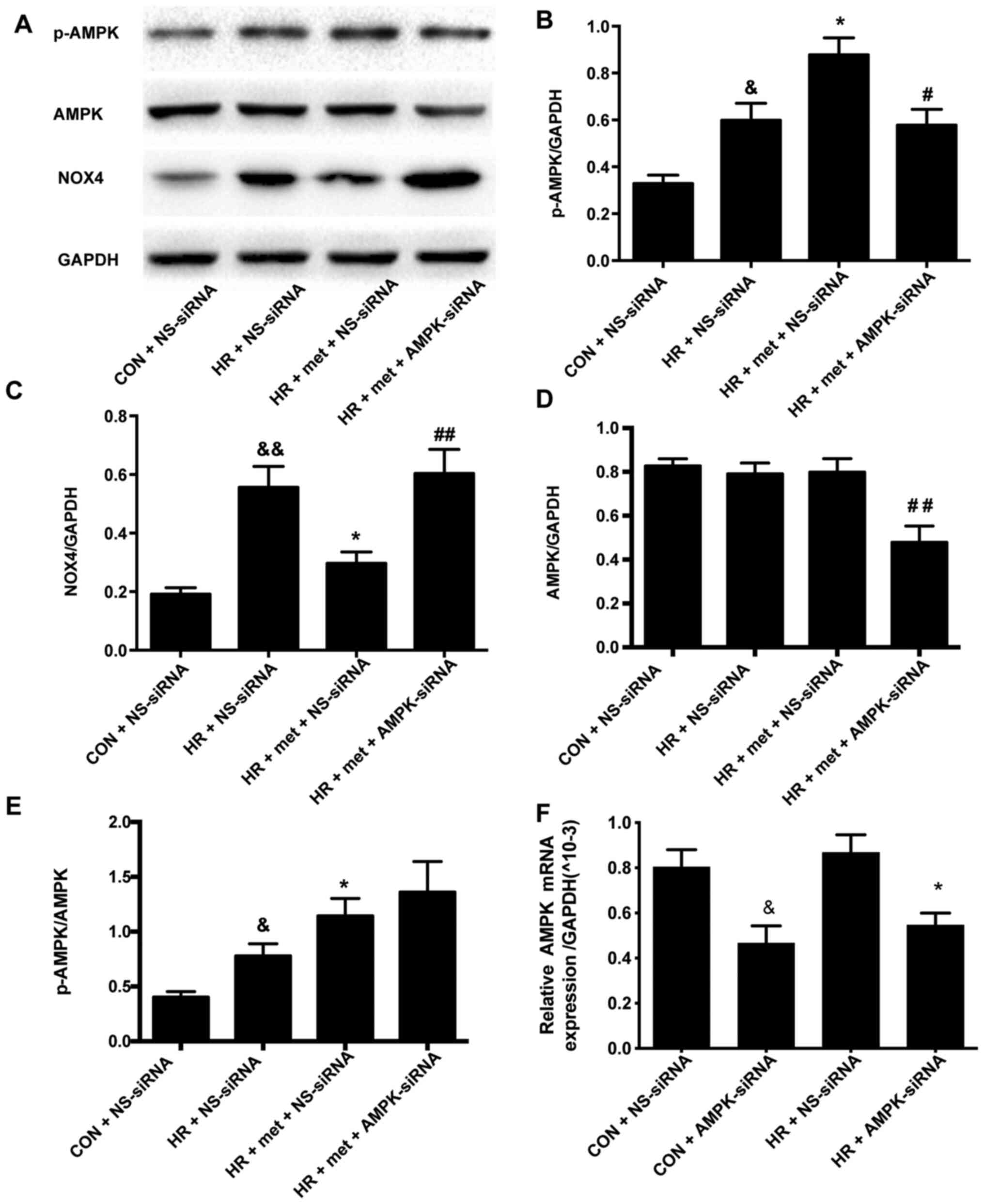|
1
|
Malakar AK, Choudhury D, Halder B, Paul P,
Uddin A and Chakraborty S: A review on coronary artery disease, its
risk factors, and therapeutics. J Cell Physiol. 234:16812–16823.
2019. View Article : Google Scholar : PubMed/NCBI
|
|
2
|
Monassier JP: Reperfusion injury in acute
myocardial infarction. From bench to cath lab. Part I: Basic
considerations. Arch Cardiovasc Dis. 101:491–500. 2008. View Article : Google Scholar : PubMed/NCBI
|
|
3
|
Yellon DM and Hausenloy DJ: Myocardial
reperfusion injury. N Engl J Med. 357:1121–1135. 2007. View Article : Google Scholar : PubMed/NCBI
|
|
4
|
Sies H: Oxidative stress: A concept in
redox biology and medicine. Redox Biol. 4:180–183. 2015. View Article : Google Scholar : PubMed/NCBI
|
|
5
|
Matsushima S, Tsutsui H and Sadoshima J:
Physiological and pathological functions of NADPH oxidases during
myocardial ischemia-reperfusion. Trends Cardiovasc Med. 24:202–205.
2014. View Article : Google Scholar : PubMed/NCBI
|
|
6
|
Braunersreuther V, Montecucco F, Asrih M,
Pelli G, Galan K, Frias M, Burger F, Quinderé AL, Montessuit C,
Krause KH, et al: Role of NADPH oxidase isoforms NOX1, NOX2 and
NOX4 in myocardial ischemia/reperfusion injury. J Mol Cell Cardiol.
64:99–107. 2013. View Article : Google Scholar : PubMed/NCBI
|
|
7
|
Matsushima S, Kuroda J, Ago T, Zhai P,
Ikeda Y, Oka S, Fong GH, Tian R and Sadoshima J: Broad suppression
of NADPH oxidase activity exacerbates ischemia/reperfusion injury
through inadvertent downregulation of HIF-1α and upregulation of
PPARα. Circ Res. 112:315–325. 2013. View Article : Google Scholar : PubMed/NCBI
|
|
8
|
Russell RR III, Li J, Coven DL, Pypaert M,
Zechner C, Palmeri M, Giordano FJ, Mu J, Birnbaum MJ and Young LH:
AMP-activated protein kinase mediates ischemic glucose uptake and
prevents postischemic cardiac dysfunction, apoptosis, and injury. J
Clin Invest. 114:495–503. 2004. View
Article : Google Scholar : PubMed/NCBI
|
|
9
|
Folmes CD, Wagg CS, Shen M, Clanachan AS,
Tian R and Lopaschuk GD: Suppression of 5-AMP-activated protein
kinase activity does not impair recovery of contractile function
during reperfusion of ischemic hearts. Am J Physiol Heart Circ
Physiol. 297:H313–H321. 2009. View Article : Google Scholar : PubMed/NCBI
|
|
10
|
Liu B, Clanachan AS, Schulz R and
Lopaschuk GD: Cardiac efficiency is improved after ischemia by
altering both the source and fate of protons. Circ Res. 79:940–948.
1996. View Article : Google Scholar : PubMed/NCBI
|
|
11
|
Wang YW, He SJ, Feng X, Cheng J, Luo YT,
Tian L and Huang Q: Metformin: A review of its potential
indications. Drug Des Devel Ther. 11:2421–2429. 2017. View Article : Google Scholar : PubMed/NCBI
|
|
12
|
Nicholls SJ, Tuzcu EM, Kalidindi S, Wolski
K, Moon KW, Sipahi I, Schoenhagen P and Nissen SE: Effect of
diabetes on progression of coronary atherosclerosis and arterial
remodeling: A pooled analysis of 5 intravascular ultrasound trials.
J Am Coll Cardiol. 52:255–262. 2008. View Article : Google Scholar : PubMed/NCBI
|
|
13
|
Norhammar A, Lindbäck J, Rydén L,
Wallentin L and Stenestrand U; Register of Information and
Knowledge about Swedish Heart Intensive Care Admission (RIKS-HIA),
: Improved but still high short- and long-term mortality rates
after myocardial infarction in patients with diabetes mellitus: A
time-trend report from the Swedish Register of Information and
Knowledge about Swedish Heart Intensive Care Admission. Heart.
93:1577–1583. 2007. View Article : Google Scholar : PubMed/NCBI
|
|
14
|
Wang X, Yang L, Kang L, Li J, Yang L,
Zhang J, Liu J, Zhu M, Zhang Q, Shen Y, et al: Metformin attenuates
myocardial ischemia-reperfusion injury via up-regulation of
antioxidant enzymes. PLoS One. 12:e01827772017. View Article : Google Scholar : PubMed/NCBI
|
|
15
|
Calvert JW, Gundewar S, Jha S, Greer JJ,
Bestermann WH, Tian R and Lefer DJ: Acute metformin therapy confers
cardioprotection against myocardial infarction via
AMPK-eNOS-mediated signaling. Diabetes. 57:696–705. 2008.
View Article : Google Scholar : PubMed/NCBI
|
|
16
|
Paiva M, Riksen NP, Davidson SM, Hausenloy
DJ, Monteiro P, Gonçalves L, Providência L, Rongen GA, Smits P,
Mocanu MM, et al: Metformin prevents myocardial reperfusion injury
by activating the adenosine receptor. J Cardiovasc Pharmacol.
53:373–378. 2009. View Article : Google Scholar : PubMed/NCBI
|
|
17
|
Solskov L, Løfgren B, Kristiansen SB,
Jessen N, Pold R, Nielsen TT, Bøtker HE, Schmitz O and Lund S:
Metformin induces cardioprotection against ischaemia/reperfusion
injury in the rat heart 24 hours after administration. Basic Clin
Pharmacol Toxicol. 103:82–87. 2008. View Article : Google Scholar : PubMed/NCBI
|
|
18
|
Melendez GC, Chen Q and Lesnefsky EJ:
Metformin as a modulator of myocardial fibrosis post-myocardial
infarction via regulation of cardiomyocyte-fibroblast crosstalk.
Transl Res. 199:1–3. 2018. View Article : Google Scholar : PubMed/NCBI
|
|
19
|
Bai J, Zhang N, Hua Y, Wang B, Ling L,
Ferro A and Xu B: Metformin inhibits angiotensin II-induced
differentiation of cardiac fibroblasts into myofibroblasts. PLoS
One. 8:e721202013. View Article : Google Scholar : PubMed/NCBI
|
|
20
|
Eid AA, Ford BM, Block K, Kasinath BS,
Gorin Y, Ghosh-Choudhury G, Barnes JL and Abboud HE: AMP-activated
protein kinase (AMPK) negatively regulates Nox4-dependent
activation of p53 and epithelial cell apoptosis in diabetes. J Biol
Chem. 285:37503–37512. 2010. View Article : Google Scholar : PubMed/NCBI
|
|
21
|
Zhang WX, Tai GJ, Li XX and Xu M:
Inhibition of neointima hyperplasia by the combined therapy of
linagliptin and metformin via AMPK/Nox4 signaling in diabetic rats.
Free Radic Biol Med. 143:153–163. 2019. View Article : Google Scholar : PubMed/NCBI
|
|
22
|
National Research Council, . Guide for the
Care and Use of Laboratory Animals. National Academy Press;
Washington, DC: 1985
|
|
23
|
Lee SY, Ku HC, Kuo YH, Chiu HL and Su MJ:
Pyrrolidinyl caffeamide against ischemia/reperfusion injury in
cardiomyocytes through AMPK/AKT pathways. J Biomed Sci. 22:182015.
View Article : Google Scholar : PubMed/NCBI
|
|
24
|
Cheng Y, Zhu P, Yang J, Liu X, Dong S,
Wang X, Chun B, Zhuang J and Zhang C: Ischaemic
preconditioning-regulated miR-21 protects heart against
ischaemia/reperfusion injury via anti-apoptosis through its target
PDCD4. Cardiovasc Res. 87:431–439. 2010. View Article : Google Scholar : PubMed/NCBI
|
|
25
|
Sun HY, Wang NP, Kerendi F, Halkos M, Kin
H, Guyton RA, Vinten-Johansen J and Zhao ZQ: Hypoxic
postconditioning reduces cardiomyocyte loss by inhibiting ROS
generation and intracellular Ca2+ overload. Am J Physiol
Heart Circ Physiol. 288:H1900–H1908. 2005. View Article : Google Scholar : PubMed/NCBI
|
|
26
|
Kobashigawa LC, Xu YC, Padbury JF, Tseng
YT and Yano N: Metformin protects cardiomyocyte from doxorubicin
induced cytotoxicity through an AMP-activated protein kinase
dependent signaling pathway: An in vitro study. PLoS One.
9:e1048882014. View Article : Google Scholar : PubMed/NCBI
|
|
27
|
Livak KJ and Schmittgen TD: Analysis of
relative gene expression data using real-time quantitative PCR and
the 2(-Delta Delta C(T)) Method. Methods. 25:402–408. 2001.
View Article : Google Scholar : PubMed/NCBI
|
|
28
|
Poli G and Schaur JR: 4Hydroxynonenal in
the pathomechanisms of oxidative stress. IUBMB Life. 50:315–321.
2000. View Article : Google Scholar : PubMed/NCBI
|
|
29
|
Ibáñez B, Heusch G, Ovize M and Van de
Werf F: Evolving therapies for myocardial ischemia/reperfusion
injury. J Am Coll Cardiol. 65:1454–1471. 2015. View Article : Google Scholar : PubMed/NCBI
|
|
30
|
Sluijter JP, Condorelli G, Davidson SM,
Engel FB, Ferdinandy P, Hausenloy DJ, Lecour S, Madonna R, Ovize M,
Ruiz-Meana M, et al Nucleus of the European Society of Cardiology
Working Group Cellular Biology of the Heart, : Novel therapeutic
strategies for cardioprotection. Pharmacol Ther. 144:60–70. 2014.
View Article : Google Scholar : PubMed/NCBI
|
|
31
|
Hadi NR, Al-Amran F, Yousif M and Zamil
ST: Antiapoptotic effect of simvastatin ameliorates myocardial
ischemia/reperfusion injury. ISRN Pharmacol. 2013:8150942013.
View Article : Google Scholar : PubMed/NCBI
|
|
32
|
Group UPDS; UK Prospective Diabetes Study
(UKPDS) Group, : Effect of intensive blood-glucose control with
metformin on complications in overweight patients with type 2
diabetes (UKPDS 34). Lancet. 352:854–865. 1998. View Article : Google Scholar : PubMed/NCBI
|
|
33
|
Schramm TK, Gislason GH, Vaag A, Rasmussen
JN, Folke F, Hansen ML, Fosbøl EL, Køber L, Norgaard ML, Madsen M,
et al: Mortality and cardiovascular risk associated with different
insulin secretagogues compared with metformin in type 2 diabetes,
with or without a previous myocardial infarction: A nationwide
study. Eur Heart J. 32:1900–1908. 2011. View Article : Google Scholar : PubMed/NCBI
|
|
34
|
Masoudi FA, Inzucchi SE, Wang Y, Havranek
EP, Foody JM and Krumholz HM: Thiazolidinediones, metformin, and
outcomes in older patients with diabetes and heart failure: An
observational study. Circulation. 111:583–590. 2005. View Article : Google Scholar : PubMed/NCBI
|
|
35
|
Bedard K and Krause KH: The NOX family of
ROS-generating NADPH oxidases: physiology and pathophysiology.
Physiol Rev. 87:245–313. 2007. View Article : Google Scholar : PubMed/NCBI
|
|
36
|
Sato N, Takasaka N, Yoshida M, Tsubouchi
K, Minagawa S, Araya J, Saito N, Fujita Y, Kurita Y, Kobayashi K,
et al: Metformin attenuates lung fibrosis development via NOX4
suppression. Respir Res. 17:1072016. View Article : Google Scholar : PubMed/NCBI
|
|
37
|
Murdoch CE, Grieve DJ, Cave AC, Looi YH
and Shah AM: NADPH oxidase and heart failure. Curr Opin Pharmacol.
6:148–153. 2006. View Article : Google Scholar : PubMed/NCBI
|
|
38
|
Sirker A, Zhang M and Shah AM: NADPH
oxidases in cardiovascular disease: Insights from in vivo models
and clinical studies. Basic Res Cardiol. 106:735–747. 2011.
View Article : Google Scholar : PubMed/NCBI
|
|
39
|
Cheng F, Yuan W, Cao M, Chen R, Wu X, Yan
J and Cyclophilin A: Cyclophilin a protects cardiomyocytes against
hypoxia/reoxygenation-induced apoptosis via the AKT/Nox2 pathway.
Oxid Med Cell Longev. 2019:27179862019. View Article : Google Scholar : PubMed/NCBI
|
|
40
|
Jin Q, Jiang Y, Fu L, Zheng Y, Ding Y and
Liu Q: Wenxin granule ameliorates hypoxia/reoxygenation-induced
oxidative stress in mitochondria via the PKC-δ/NOX2/ROS pathway in
H9c2 cells. Oxid Med Cell Longev. 2020:32454832020. View Article : Google Scholar : PubMed/NCBI
|
|
41
|
Martyn KD, Frederick LM, von Loehneysen K,
Dinauer MC and Knaus UG: Functional analysis of Nox4 reveals unique
characteristics compared to other NADPH oxidases. Cell Signal.
18:69–82. 2006. View Article : Google Scholar : PubMed/NCBI
|















